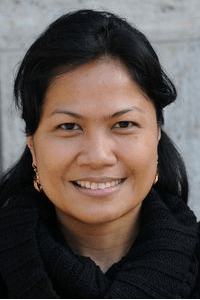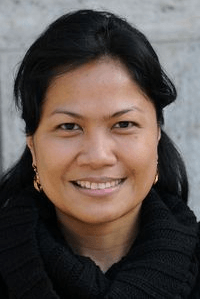EU biofuels: Palm oil boom harms indigenous people, Indonesian expert warns policy makers at the EU Dev Days
CIDSE MEDIA ADVISORY, 9 October 2012
(Brussels, 9/10/2012) At the 2012 European Development Days (EDDs, Brussels, 16 and 17 October) Rahmawati Retno Winarni will discuss the impacts of EU biofuels policy with experts from EU institutions, NGOs, and business. The Programme Director of Sawit Watch, a leading civil society organisation monitoring palm production (Sawit means oil palm) will take part in a debate co-organised by the international alliance of Catholic development agencies CIDSE.
Biofuels are under scrutiny in Brussels, as the European Commission admitted last September it needs to rethink its biofuels policy because of the impacts fuel made from food crops may have on food security.
Rahmawati Retno Winari is a leading figure in the Indonesian roundtable discussing sustainability standards among government, company and civil society representatives. She strives for more sustainable palm oil production in Indonesia, working with small farmers, workers and indigenous peoples affected by adverse impacts of this production, to strengthen their livelihoods. At the European Development Days she will speak from direct experience:
“Palm oil is far from a sustainable solution for indigenous people in Indonesia. They lose their land and forest resources, drink polluted water, are treated unequally for their work on the plantations and if they protest they face violence. As Indonesian biofuels also fuel Europe’s thirst for energy I believe EU policy makers should be aware of how the palm oil boom harms people and their environment,” Winarni said about her participation at the EDDs.
Indonesian biodiesel export increased from 563 million liters in 2010 to 1,225 million liters in 2011. Europe has become a single largest market for Indonesia; 39 percent of total European biodiesel import in 2011 came from Indonesia, up from 9 percent in 2008.*
Rahmawati Retno Winarni is in Brussels between 16-18 October 2012. To schedule an interview or for more information please contact CIDSE Media and Comunication Officer Roeland Scholtalbers, scholtalbers(at)cidse.org, +32(0)477068384, +32(0)2 282 40 73
The debate: Promoting biofuels, creating scarcity?, Wed, 17/10/2012 – 14:00 – 15:30, Tour & Taxis, Auditorium D
The European Commission admitted this September that it needs to rethink its biofuels policy, a crucial element of its 2020 renewable energy targets. This follows a weight of calls from NGOs, business leaders and researchers recently to shelve biofuels targets altogether. Plant based biofuels are becoming an increasingly controversial issue, given their potential impact on global food prices and on land rights for people in developing countries. The panel will gather experts from EU institutions, NGOs, and the private sector to confront their views.
Notes to the editors:
- *Indonesia Biofuels Annual 2012, USDA (August 2012)
- CIDSE is an international alliance of Catholic development agencies. Its members share a common strategy in their efforts to eradicate poverty and establish global justice. www.cidse.org
- CIDSE at the 2012 European Development Days: www.cidse.org
- Indonesia:”Indigenous people suffer the palm oil boom”, Rahmawati Retno Winarni explains the negative impacts of palm oil production in her country


